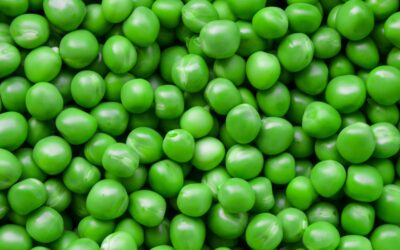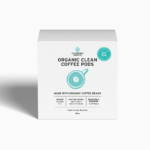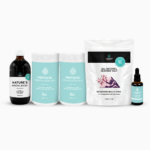PRIMARY school children are risking serious heart damage by sculling caffeine-packed energy drinks for breakfast, doctors warn. The following is an article from the Sunday Mail. It is talking about the health affects these drinks have on not only children’s health but adult health as well.
After the article I have copied and pasted a summary of an important caffeine heart risk research project called the Attica Study on Caffeine. If you have a friend that you know drinks these drinks then I suggest you send this article to them.
My son entered a competition for one of the energy drinks, he did win a good prize plus a slab of the drink. I went up to his room the other day and noticed the slab is still in tact with not one drunk. He uses is as a trophy rather then a food. I’m grateful I’ve taught him well when it comes to his health. As for me I am so sensitive to caffeine, that when I have a coffee on the odd occasion, I can feel my heart racing, my nerves tighten and my speech quickens, plus it keeps me up all night even if I have had the cuppa in the morning. I can’t even imagine what one of these caffeine spiked drinks would do to my system especially considering that the amount of caffeine in them is sometimes three times that of a cup of coffee. Caffeine is addictive, for more information read the chapter in Changing Habits Changing Lives on coffee and tea.
Students as young as 10 are snapping up at least two cans at a time on their way to school, lured by special offers at many convenience stores. Two cans of the energy drinks can have the same caffeine content as five cups of coffee. Just one energy drink can cause “serious heart conditions”, according to a study in the American Journal of Medicine. The Australian Medical Association has issued warnings for adults to limit their consumption.
Nutrition expert Dr Jennifer O’Dea, associate professor in health education at the University of Sydney, said parents needed to be aware of the energy drinks’ dangers. “Parents should be careful to make sure they avoid the various energy drinks on sale for their children and teens, especially if the child has trouble behaving or sleeping. The caffeine in such drinks is often in the form of guarana, which parents may not know is a berry with seven times the caffeine content of coffee beans,” she said.
A shop assistant at Indooroopilly who sold two cans of “Mother” to an 11-year-old last week told The Sunday Mail: “If the kids want them, I sell them…it is not illegal.” A 500ml can of Mother contains 160mg of caffeine. There is 60mg-80mg in a cup of instant coffee. Mother cans carry a warning that the product is not suitable for children.
A recent health test performed in Sydney on 19 to 21-year-olds highlighted the massive jolt to the heart from these drinks. One 19-year-old had a resting heart rate of 82 beats a minute. Half an hour later, after consuming a Mother, it hit 106.
A Queensland Health spokeswoman said the effects of two energy drinks on a child weighing less than 30kg could be dangerous. “Current evidence suggests that 75mg of caffeine per day from all food and drink sources is the limit for a 30kg child,” Queensland Health said in a statement.
Associations between coffee consumption and inflammatory markers in healthy persons: the ATTICA study.
Zampelas A, Panagiotakos DB, Pitsavos C, Chrysohoou C, Stefanadis C. Department of Nutrition and Dietetics, Harokopio University, Athens, Greece.
Abstract
BACKGROUND: The effect of coffee consumption on the cardiovascular system is conflicting. Inflammation is important to the development of cardiovascular disease (CVD), and several dietary factors are thought to exert significant effects on inflammation and thus on the risk of CVD.
OBJECTIVE: We aimed to investigate the associations between coffee consumption and inflammatory markers.
DESIGN: The cross-sectional survey enrolled 1514 men (x +/- SD age: 46 +/- 13 y; range: 18-87 y) and 1528 women (aged 45 +/- 13 y; range: 18-89 y). Five percent of men and 3% of women were excluded for history of CVD. Fasting blood samples were collected. Dietary habits (including consumption of various types of coffee) were evaluated by using a validated food-frequency questionnaire.
RESULTS: Compared with coffee nondrinkers, men who consumed >200 mL coffee/d had 50% higher interleukin 6 (IL-6), 30% higher C-reactive protein (CRP), 12% higher serum amyloid-A (SAA), and 28% higher tumor necrosis factor alpha (TNF-alpha) concentrations and 3% higher white blood cell (WBC) counts (all: P < 0.05). Women who consumed >200 mL coffee/d had 54% higher IL-6, 38% higher CRP, 28% higher SAA, and 28% higher TNF-alpha concentrations and 4% higher WBC counts (all: P < 0.05) than did coffee nondrinkers. The findings were significant even after control for the interactions between coffee consumption and age, sex, smoking, body mass index, physical activity status, and other covariates.
CONCLUSIONS: A relation exists between moderate-to-high coffee consumption and increased inflammation process. This relation could explain, in part, the effect of increased coffee intake on the cardiovascular system.
Why Cyndi’s Seaweed Salt is so Good
Salt Absorbs Mercury – Mercury is a naturally occurring element, however each year thousands of tonnes of man-made mercury from coal-burning plants and waste incineration, pollutes our land and waterways.
Microorganisms convert some of this mercury to methylmercury, which accumulates in our sea water and fish but researchers at Duke University in the US recently found that mercury can also latch on to the salt in sea water rendering the sea salt higher in mercury then just 50 years ago.
Cyndi’s seaweed salt is sourced from the Himalayas where salt was laid down thousands of years ago when the sea levels were higher and not so polluted. Make sure you know where your sea salt source is coming from.







0 Comments